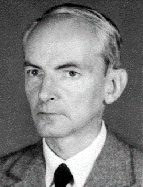

One of the aspects of Hooykaas' analyses that favoured the relevance of the geographical revolution—which generated in Europe a conflict between 'hard facts' and systems of ideas—was his analysis of Copernicus' work and its reception throughout the 16th century, showing the anachronism of those who see it as essentially revolutionary ("The Rise of Modern Science…", 1987/2003, pp. 31-36, 40-43).
In the liberal tradition of criticism, Hooykaas wondered why the Portuguese—after having pioneered geography and natural history—didn't make any significant contribution to the creation of the worldview established by Copernicus, Kepler, Galileo, Huyghens, and Newton: this was a combined effect of the curtailment of intellectual freedom (by the Inquisition and the spiritual monopoly of the Jesuits) and a sparse collaboration between practical men (craftsmen) and the scholars, which certainly had to do with the social structure of the Portuguese bourgeoisie of the time (Idem, 1966/1983, p. 596). In 1981 he added that, despite an initial period of royal protection for scientific activity (by princes Henrique and then Luís, brother of King João III), this ended up waning with the last kings of the house of Avis and the Filipes (Idem, 1981, p. 395-397).
In short, Reijer Hooykaas deepened the pragmatist interpretation, which was open to social explanations, of the significance of the knowledge linked to the Discoveries, which had its exponent during the First Republic in António Sérgio (in his essay "O Reino cadaveroso" [The corpse kingdom]). This interpretation is compatible and even has affinities with the work of Olschki, Merton, and Zilsel. Hooykaas was a cosmopolitan Dutchman whose research was not motivated by Portuguese/Iberian nationalist or pro-Catholic arguments. After carefully studying the relationship between science and the Reformation—which did not favour an optimistic perspective on the perpetuation of the Portuguese "revolution of experience"—he saw a particular configuration in our "case": a "Manueline-style science" in which he identified elements of modernity imposed by practical needs, i.e. the interaction between the hand and the head, the sense of the concrete, the abandonment of philosophical prejudices when solving concrete problems, as well as the development of the rigour of observation, which in Castro was extended to a care for the causes of error and an experimental sense, which was combined with a disinterested curiosity, a feeling for the beauty of the natural world and the glory of understanding it, as well as an (Erasmian) ethical humanism, ruled by care for others and a tolerance and interest in other peoples (Idem, 1981, p. 408).
This work is financed by national funds through FCT - Foundation for Science and Technology, I.P, in the scope of the projects UIDB/04311/2020 and UIDP/04311/2020.
